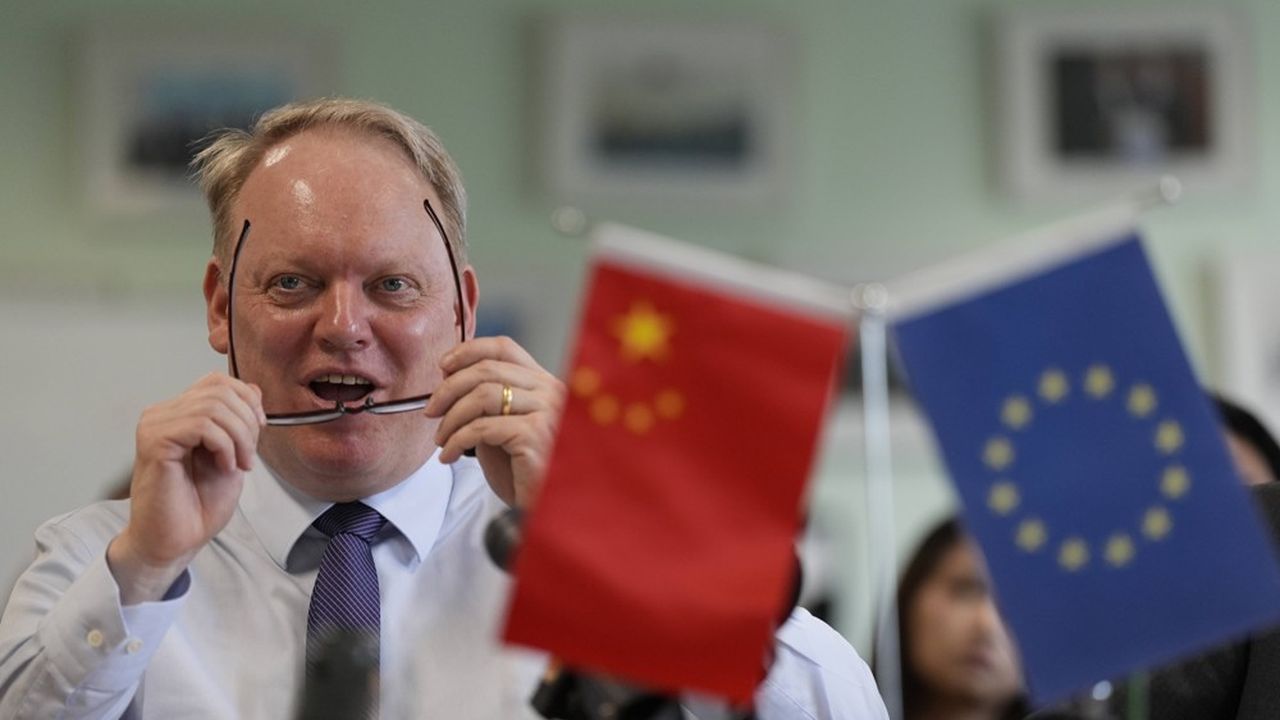
As the world’s second-largest economy struggles to restart since the end of Covid, it is time for European companies to ask themselves the right questions. And in particular to “seriously rethink their strategy” in China, warns the Chamber of Commerce of the European Union.
“Many investors are now faced with the reality that the problems they encounter in the Chinese market may be permanent,” said the latest annual report from the Chamber – which represents more than 1,700 companies established in the country.
“Returns that are no longer proportional to risks”
The picture painted by European companies in China is far from being as idyllic as in the past, when the Middle Kingdom was the essential part of any international strategy. According to the report published on Wednesday, profit margins in China are equal to or lower than the global average for 71% of members of the EU Chambers of Commerce. And 44% of the companies surveyed say they are pessimistic about their future profitability. A level not seen since 2012 and the first survey conducted by the Chamber.
“The main change compared to the period before 2021 is that we have seen the Chinese market deteriorate quite rapidly,” says chamber president Jens Eskelund. “And that means that in addition to the ongoing problems we face in terms of regulation, we are also starting to face problems in terms of our ability to make money in the Chinese market,” he adds.
“A growing number of companies have now reached a tipping point,” Jens Eskelund points out. And investors are now “looking more closely at their operations in China, as the challenges of being present there begin to outweigh the benefits.”“Shareholders are now looking at the situation in a very cold way and are simply saying that the returns are no longer proportional to the risk,” adds Carl Hayward, director general of the EU Chamber of Commerce.
An increasingly politicized environment
Because, the report recalls, companies have to deal with many problems such as overcapacity, permanent market access, regulatory barriers (particularly in public procurement), as well as a highly politicized business environment. And on this point, recent frictions with the European Union weigh more and more, raising fears of a trade war between the two partners.
The increasingly politicized environment and unclear regulations also complicate matters. Recent counterintelligence and international relations legislation has also forced foreign companies to devote more resources to ensuring they comply with these laws.
In this context, the risks for a European company to work in China “are increasing, and the rewards seem to be decreasing”, observes the Chamber. “This increases the attractiveness of other markets that can provide more legal certainty”, believes the Chamber, but “China still has significant potential”, nevertheless judges Jens Eskelund, who calls for “more action by the Chinese government”.
Because if in July, the “Third Plenum” of the Chinese Communist Party, focused on the major economic orientations, had raised hopes of reform, no concrete measures have been announced since. And the conclusions of this meeting rather suggest that “a return of the state sector, in line with China’s objectives, more focused on security, could be favored over the private sector,” notes the Chamber of Commerce report.





